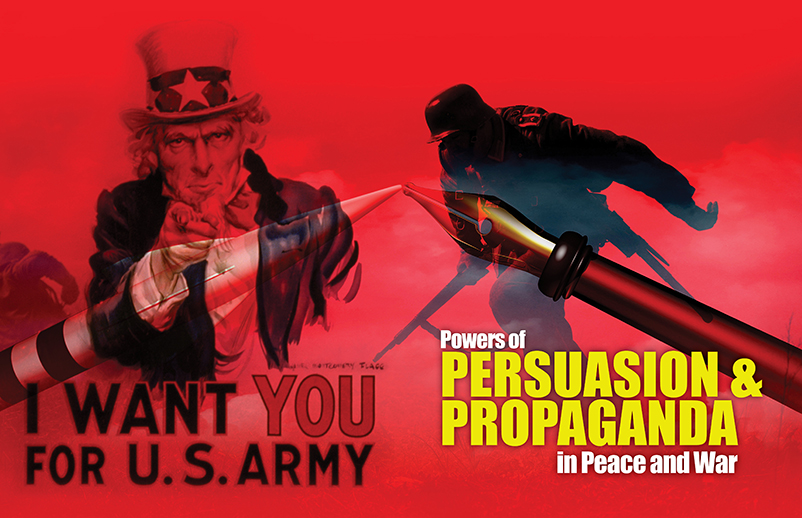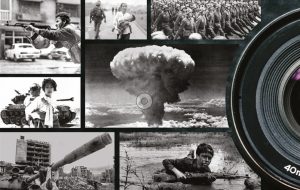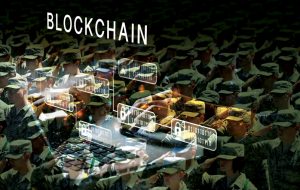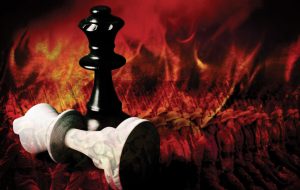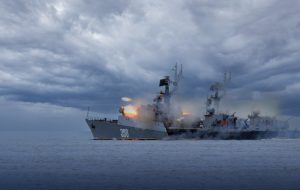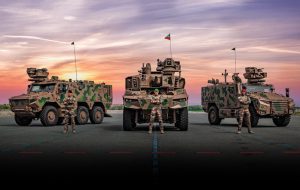Propaganda can be defined as “the deliberate attempt to influence opinions of the target group through transfer of ideas and values, to convince them of a specific goal”, and it is designed consciously, for the benefit of those in charge of it and their superiors, whether directly or indirectly. Propaganda, according to this definition, is different from the media, which seeks to convey facts objectively, and from education, which aspires to open the minds of students. The goal of the media is the opposite: to convince the individual or the masses of one point of view, and block the way for any other options.
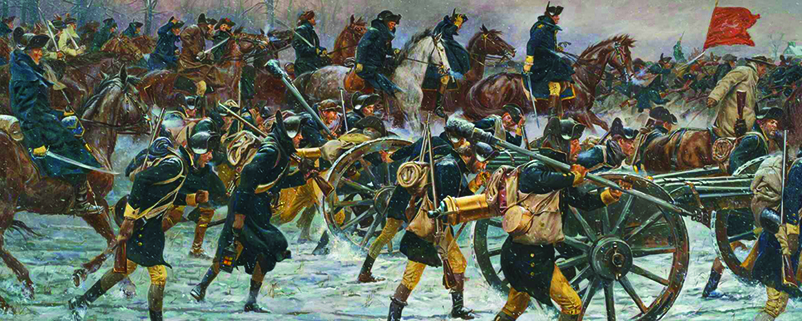
In the short term, propaganda may set its target audience on a wave of enthusiasm, but in the longer term it becomes less effective, because that audience has the time and opportunity to question its assumptions. As some experts have noted, if propaganda is too rational it may run the risk of becoming boring, and if it is too emotional or intense it may seem ridiculous. For propaganda to succeed, as in other forms of human interaction, it must balance reason and emotion.
In propaganda, all that is successful is permitted, and it is either apparent and public or hidden and disguised, white or black, truthful or false, serious or sarcastic, rational or emotional. Propaganda officials evaluate the circumstances and the category to which the propaganda is directed, and use all methods they deem most appropriate and effective. Propaganda always uses the latest methods of communication. In the First World War, the press was used, and in the Second World War, newscasts were used in radio and cinema, and in the wars that came after 1945, television was used. In addition, the twentieth century also witnessed the emergence of modern means of mass media, where the main means of mass media appeared: the press, radio, cinema, television and the Internet. Thus, the communications revolution made an astronomical leap, and it was the blending of war with mass media that gave modern propaganda to war its importance and impact.
The relationship between propaganda and war has existed for a long time. Propaganda has always been a tool of attack and defense in war, sometimes equal, in terms of influence, with tools of killing and destruction, and may even exceed the most powerful means of destruction, because it may penetrate even the minds that control everything. During wars, hot conflicts impose their own laws and laws on all parties involved in the conflict, but at the same time, at the media level, they raise sensitive professional problems, very important and complex. With the start of the war, campaigns of intimidation, misinformation, distortion of facts, and systematic manipulation of all sources of information are launched, and thus, propaganda becomes an integral part of the war. It can be said that what is meant by war propaganda is “the set of activities carried out by the armed forces in this regard at the level of propaganda directed at the hostile forces, leaders and soldiers, and at the level of the friendly forces themselves, with regard to raising morale and immunizing these forces against propaganda directed at them by the enemy”.
Propaganda and the art of persuasion
Persuasion is the ability to affect attitudes, beliefs, intentions, and motives, and aims to change the attitude or behavior of a person (or group) toward a specific event, idea, thing, or other person or persons, and this is done by using written or spoken words to convey information, feelings, or a combination of both. Persuasion is one of the methods accompanying others used in the field of psychological warfare that seeks to influence the emotions, feelings and the emotional aspects of the target. Persuasion can be defined as a term as “the deliberate and organized effort that uses various means to influence the opinions and ideas of others so as to make them accept and agree with the viewpoint on a particular subject, through psychological and social knowledge of that target audience.” Persuasion aims to influence the mind and thought in order to push the individual or the public to accept a particular point of view, while propaganda aims to directly influence the emotions and feelings of that audience.
Persuasion is either direct or indirect. Direct persuasion addresses the individual or the public automatically without equivocation or politeness, which usually provokes the recipient’s defenses, and makes him show intransigence and increasing psychological resistance, which often results in non-acceptance of the point of view presented. As for indirect persuasion, it is hidden, but it is intelligent. It pushes the recipient to infer matters by himself, and then proceeds to make decisions regarding the subject at hand, which makes him feel satisfied and psychologically comfortable. Persuasion is considered successful if decisions are issued by the target party so that they are parallel to the issues raised, meaning that those decisions go with the viewpoints to be adopted. Likewise, persuasion is either voluntary or coercive, as in brainwashing.
Propaganda, as one of the methods of psychological warfare, has succeeded at the hands of specialists in developing its own set of assets or rules aimed at persuasion on the basis of saying that propaganda is, in the end, the art of persuasion. To gain the confidence of the receiving audience to be persuaded, then simplicity and repetition to reach the minds and feelings of people quickly, and access to their memory that will only remember what it has easily and abundantly absorbed, then use symbols and acquired multiple examples. However, this formulation of the principles or rules of propaganda loses much of its objectivity in practical application, as the subtle differences between the appearance of honesty and truth itself, or between simplicity and cunningness, or between symbols that provoke the instincts of aggression, and those that call for noble meanings or high values.
Propaganda is also characterized as the art of persuading others to follow a certain direction or behavior under the influence of propaganda ideas. The use of the word persuasion here excludes any attempts to influence through force or coercion, and consequently, any person resorts to any means of force, such as threats, intimidation, or social pressure, or the like, in order to push people to do something that contradicts the truth they want, this method cannot be included in any way in the list of.

The beginning of using propaganda
The word “propaganda” has its origins in the religious reform movement in Europe, where the Catholic Church found itself in a struggle to maintain its grip and dominance over non-Catholic countries, and to expand its sphere of influence in them. Pope Gregory XIII (circa 1572-1585) formed a committee of Cardinals, and assigned them the task of spreading the Catholic doctrine and regulating ecclesiastical affairs in non-Catholic countries. In 1622, Pope Gregory XV made this commission permanent in the form of a Holy Synod for the propagation of Christianity and the administration of missions abroad, and it was financed from the proceeds of the “ring tax” which was levied on each cardinal appointed. Thus, the first official assembly of preachers was a body charged with improving the process of spreading a group of religious beliefs, and the word “propaganda” became used to refer to any organization that establishes the propagation of a certain doctrine, then it was applied to the doctrine itself that is being disseminated, and finally to the methods used in preaching and dissemination.
Propaganda and psychological warfare
War is in essence an organized exchange of violence, but propaganda in its essence is a process of persuasion, and while the first attacks the body, the second attacks the mind, and the first is sensual, while the second is psychological. In wartime, propaganda and psychological operations attack a part of the body that other weapons cannot reach, as they try to raise the morale of one side and undermine the will to fight on the other side. Wartime propaganda plots its plans to persuade people to go to war. Psychological warfare, on the other hand, is propaganda designed to persuade the opposing party not to go to war. And these weapons of the mind, like conventional weapons, are becoming increasingly complex with advances in technology and psychology.
Propaganda is based on the use of modern media to disseminate and promote ideas, beliefs and news for the purpose of influencing the psyche of individuals and creating certain trends for them. Propaganda, as a method of psychological warfare, takes various forms, according to the goals and the type of individuals and groups directed to them. It aims to be convinced of victory, to convince the enemy of its defeat, to question its national and spiritual principles and beliefs, and to sow seeds of doubt in the hearts of its members about the legitimacy of their cause and belief in it.
The use of propaganda in times of war
During the Civil Wars in England, propaganda through printed leaflets and newsletters, circulated regularly, was an aid to war operations, and Cromwell’s army was almost as concerned with spreading religious and political beliefs as it was with victory on the battlefield. The use of propaganda has increased continuously, especially in times of ideological conflicts, such as the American War of Independence and the French Revolution. For example, during the French Revolution the Girondins (these factions were affiliated with the ruling Republican Party in France, so called because the party leaders came from the Gironde) distributed leaflets among the ranks of the enemies, calling on them to abstain from military service, in exchange for rewards.
In the hundred years after the Napoleonic Wars, and until the outbreak of the First World War, there were no revolutionary wars in Europe, so only in a few cases was there a need for strong and intense propaganda at the national level. From 1914 to 1918, both sides of the First World War used propaganda extensively as a weapon of war, turning its meaning into something nasty. This war proved that public opinion, as an essential and decisive factor in government policy, could no longer be ignored, and officials realized that morale was an important factor in war.
Propaganda began to emerge in Britain as a major tool for controlling public opinion, and this process continued to escalate until it culminated in the establishment of the Ministry of Information in 1917, and an independent administration for hostile propaganda was established. Through tight censorship and carefully organized propaganda campaigns, the press, films, publications and posters could be harnessed and coordinated, in an unprecedented way, to disseminate “officially” approved topics. Thanks in part to the government’s skill in the use of propaganda and censorship, the national consensus in wartime Britain remained afloat, but after the war ended, mistrust began to emerge among ordinary citizens, who realized it was being blacked out, deliberately, on the situation on the battlefronts, behind patriotic slogans, and through “propaganda of the enemy’s brutality”, which was transmitting fabricated and repeated images of the atrocities committed by the enemy. Citizens also felt deceived that their sacrifices did not lead to the “land worthy of heroes,” which they were promised. Propaganda became associated with lies, the Ministry of Information was abolished, and the government itself viewed propaganda as politically dangerous and morally unacceptable in peacetime.
Propaganda was, in the words of British officials, in the 1920s: “a good word that has gone astray,” and the hatred of propaganda was so deep that when the British government during World War II tried to educate citizens about Nazi concentration camps, that information was viewed with suspicion by many. As “propaganda” they did not believe it.
British propaganda in the First World War provided a fertile source for the Germans to conduct counter-propaganda against the peace treaties at Versailles.
In his book, Mein Kamph, Hitler said in 1915, the enemy began its propaganda among our soldiers, as it began in 1916, this propaganda became more and more intense, and at the beginning of 1918, it swelled and turned into stormy clouds, and we can now see the effects of this; the temptation is gradual, and our soldiers have learned to think the way the enemy wanted them to.”
Hitler claimed that the German army had not been defeated on the battlefields, but had succumbed to the destruction of its morale that was fueled by skillful British propaganda, thus providing historical legitimacy to the myth of the “stab in the back”. Regardless of the real role played by British, or Bolshevik, propaganda in the collapse of Germany, many believed that Britain’s experiment in propaganda in the period 1914-18 was very successful, and provided an example for other governments to follow. Hitler himself praised the British when he wrote: “Germany did not realize that propaganda was a weapon in the first place, while the British wielded it with great skill and ingenuity.” It was not surprising that one of Hitler’s first decisions after taking power in 1933 was the establishment of a Ministry of Propaganda and the appointment of Goebbels as its minister. The Nazi leader believed that the function of propaganda is to draw the attention of the masses to certain facts, processes and necessities, and thus put its importance, for the first time, before their eyes, and accordingly, propaganda must be simple, focus on the fewest points possible, and be repeated frequently, emphasizing the emotional aspects, such as love and hate. Hitler concluded that the continuity of propaganda and its presentation in the same manner always could lead to results “almost beyond our comprehension”.
Unlike the Nazis, the Bolsheviks made a distinction between agitation and propaganda. In the Soviet Russia, agitation was concerned with influencing the masses, through ideas and slogans, while propaganda was used to spread the ideology of Marxism-Leninism, and this distinction goes back to the opinion of the Russian expert who wrote the following in 1892: “The propagandist presents many ideas to one person, or a few people, and the provocateur presents one idea or a few ideas, but presents them to all the masses.” By contrast, the Nazis viewed propaganda not merely as a tool for reaching party loyalists, but as a means of persuading, indoctrinating and inculcating all Germans.
Propaganda from Goebbels’ perspective
Joseph Goebbels (the most famous example of the notorious German propaganda man in the era of Hitler) says: “Propaganda is a word unjustly accused and severely slandered, and often misunderstood, and used by the layman, who is not a specialist, to denote something low, even loathsome, and this word always leaves a bitter aftertaste. “. Goebbels said this when speaking immediately after his appointment as Minister of National Guidance and Propaganda in the first government formed by Hitler in March 1933, the role he had to play most to ensure and continue this “bitter taste”.
However, Goebbels added, “I cannot convince a person of the necessity of something, unless I know the psychology of that person, and unless I understand how to play the strings of himself in order to be understood.” Paradoxically, Goebbels took upon himself the task of ridding propaganda of misconceptions, as described as “lies”, “deceptions” or “brainwashing”, because the reason why publicity is associated with negatives in people’s minds is largely due to Nazi propaganda.
The activities and work of German propaganda during the era of Goebbels were more developed and advanced than they were in the period 1914-1918. Among the methods used by Goebbels was the establishment of fake “fifth column” radio stations, suggesting that they were broadcasting from within Britain, and the use of British pro-Nazis to broadcast propaganda from Berlin. Britain responded to this by setting up the “Black Propaganda” radio, some of whose employees were Jewish refugees and anti-Nazi German exiles.
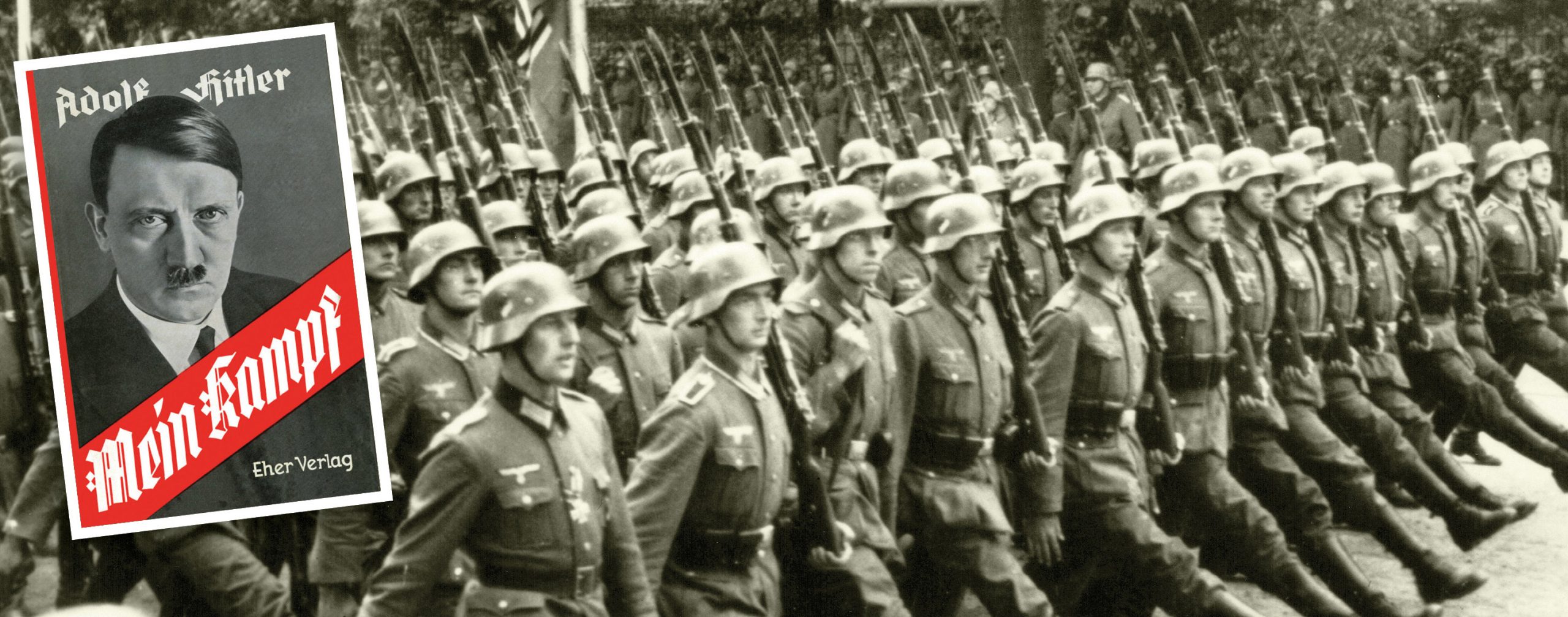
قوى الإقناع والدعاية في السلم والحرب
Lessons from World War II
In World War II, just as the Nazis had a Ministry of Propaganda, the Soviets had a Propaganda Committee of the Communist Party, and the British had a Ministry of Information, as in the USA there was an Office of War Information. After 1945, the lessons learned from the use of propaganda in World War II were laid out as part of a larger “communication revolution.” Professors of political sciences and sociologists developed theories about the nature of humans and modern society, in light of the rise of a society dominated by consumerism, and totalitarian and oppressive regimes. Individuals were viewed as the same and easy to lead and influence, while the pessimistic view of the large society emphasized the feeling of alienation in the workplace, the decline of religion and family ties, and the general decline in moral values. Although it is prone to ideological fanaticism, and vulnerable to manipulation, through co-optation and influence. Accordingly, the perception of propaganda has changed, and it is seen as a “magic recipe”, or a “syringe under the skin”, penetrating into the thoughts of the masses, and controlling their opinions and behavior.
Some sociologists have opposed this bleak view, and said that propaganda within the framework of a large society divided into small groups is nothing but a mechanism to tickle public opinion, and a means of social control. This view was developed by a French sociologist, who said that the technical community has influenced and controlled people to such an extent that they now feel ”the need for propaganda”. According to this view, propaganda is most effective when it reinforces existing ideas and beliefs. Thus, a more complex model has replaced the idea of ”the hypodermic injection”, and this model acknowledges the influence of the media, but at the same time recognizes that individuals are looking for people of their class or gender who form opinions, in order to confirm ideas and their trends.
Most writers and researchers today agree that propaganda proves rather than changes, and is most effective when it is consistent with the existing opinions and beliefs of the people it targets. This shift in attention highlights a number of common misconceptions about propaganda. Many believe that propaganda does not mean more than being the art of persuasion, and aims only to change ideas and trends, but propaganda is more than that, concerned with the consolidation of existing trends and beliefs, with the aim of improving them, or focusing on them.
Another misconception is that propaganda contains nothing but lies. In fact, propaganda deals with different types of truth, ranging from outright lies and truth taken out of context, through to half-truths. During wars and conflicts, such as the war to liberate Kuwait, British officials brought back to the minds of the British people what happened in Dunkirk, or the Blitz air attack, or the spirit of the “Falklands war”, and assured them that inflation could be reduced “with the stroke of a pen”, and promised not to increase it. Taxes “so long as this government is in power” and “the pound in your pocket” has not and will not be devalued, and since 1997 officials have been urging people to see themselves as living in “peaceful Britain”. Propaganda is far from a malignant tumor, but rather an essential part of the political process.
Propaganda and contemporary wars
Never in the history of the world has war propaganda received the attention of people as it did during contemporary wars, due to the development of technical capabilities, where civilians have become in front of media in war, and each party uses the latest tools and means that have enabled the recipient to become a participant in the events, not just a passive observer, who is able to enter the decision-making halls. And people found themselves, through various media, at the center of the battles, through television, satellite, radio networks, and the Internet. Although the Napoleonic Wars and the American War of Independence were a harbinger of the arrival of this phenomenon, due to the size and level of popular participation. Wars in the twentieth century differed significantly from previous conflicts, not only in the extent of their breadth, but also in the degree to which civilians were affected by them and their direct contribution to the events of their line. First, war has become a matter of concern to every citizen, and a struggle for national survival requires the mobilization of all state resources, military, economic, industrial, human and psychological, with the aim of achieving victory or avoiding defeat.
The modern arts of war came with battles to be closer to the lives of ordinary citizens than ever before, especially with the possibility of civilians being bombed, and forced conscription, warnings of air raids, and rationing and limiting the permitted quantities of food became vital influencing factors. Ordinary men and women, who would not have previously been greatly affected by the wars waged by professional soldiers in distant lands, found themselves directly affected by the events at the front. Consequently, their morale, and their will to fight and to resist at the overall collective level, became an important military and war asset, to the extent that it was no longer possible to consider war as the sport of kings and nobility, but rather, in the words of Clemenceau (twice Prime Minister of France) during and after World War I) “a matter too dangerous to be left to the generals.”
In the war over Kosovo, both sides realized the importance of manipulating news for their own benefit. Moreover, the latest and most advanced thing that appeared in the field of communications, the Internet, was used to spread propaganda. When the North Atlantic Treaty Organization “NATO” decided to declare war on the Serbs, it was keen to justify the reasons for that war by emphasizing the “humanitarian goals” of its aerial bombing campaign, and the accuracy of the weapons it uses. The NATO spokesperson often repeated the phrase: “Our cause is just.” The Serbian leader, Milosevic, also used the media for propaganda purposes, allowing BBC and CNN reporters to continue reporting from Belgrade, hoping to divide public opinion in the West by broadcasting stories about innocent civilians killed in NATO air strikes. Since the most effective propaganda is that which can be verified and confirmed. NATO was put on the defensive to respond to attack or to criticism of the propaganda war when it had to acknowledge the validity of some Serbian claims of casualties from aerial bombardment. The conflict in Kosovo was only the latest war that consolidated the central importance of propaganda in the war, which is sure to increase in light of the globalization of the media.
» By: Major General Dr./ Ali Muhammad Ali Ragab
(Military researcher and strategist)


